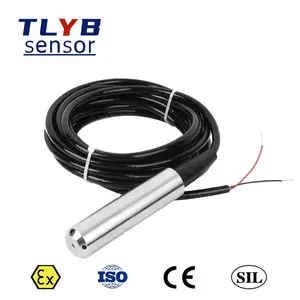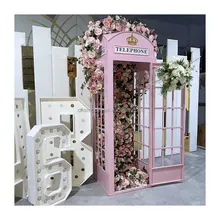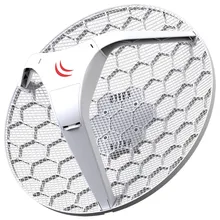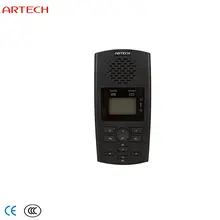Understanding Boiler Water Level Sensors
Integral to boiler systems across residential and commercial domains, Water Level Sensors are pivotal safety devices. They vigilantly track the water quantity within the boiler's tank, alerting the control system when levels fall beneath a predefined threshold, thereby ensuring the boiler's proper functioning and safety.
These sensors operate on diverse principles, including conductivity, ultrasonic, and magnetic level detection. Conductivity sensors leverage the electrical conductivity of water to ascertain its presence or absence at certain levels. Ultrasonic sensors gauge the duration of ultrasonic waves passing through water, facilitating non-contact level measurement. Magnetic sensors, exploiting the inherent magnetism of water, offer precise and unobtrusive level detection.
Boiler safety and efficiency hinge on these sensors. Insufficient water levels can lead to overheating and damage, while excessive levels may cause water carryover, damaging or reducing the efficiency of the steam system. By perpetually monitoring water levels and communicating with the control system to adjust water accordingly, these sensors are critical in maintaining optimal boiler operation.
Diverse Water Level Sensors for Boilers
Market availability includes a variety of water level sensors, each tailored to specific monitoring requirements:
-
Float Switches: Among the simplest water level sensors, float switches comprise a buoyant float that moves with the water surface, manipulating an electrical contact to trigger alarms or activate pumps in response to level changes.
-
Reed Switches: These switches employ a magnetic reed sensor that activates via a magnetic field as the float passes, ideal for point-level detection in smaller tanks or reservoirs.
-
Ultrasonic Sensors: Emitting high-frequency sound waves that reflect off the water's surface, these sensors provide continuous level feedback and are preferred for precision-demanding settings like laboratories or industrial processes.
-
Capacitive Sensors: Detecting water presence through an electrical field, these sensors are celebrated for their sensitivity and reliability, commonly used in domestic appliances and water dispensers to monitor levels and ensure safety.
-
Pressure Transducers: These sensors, measuring water pressure, are prevalent in boiler systems, signaling control units to maintain appropriate water levels upon detecting pressure changes.
Selecting the Right Water Level Sensor for Boilers
Choosing an appropriate water level sensor entails a thorough understanding of your specific application needs and the capabilities of various sensor types. Consider the following when selecting a sensor:
-
Boiler Type and Size: Ascertain the sensor's suitability for either a compact residential boiler or a robust industrial one, which will dictate the required durability and sensitivity.
-
Compatibility: Ensure the sensor aligns with your boiler's operational parameters, including temperature and pressure ranges.
-
Material: Select a sensor material (e.g., stainless steel or plastic) that offers the necessary durability and can withstand the environmental conditions of its intended setting.
-
Output Signal: Choose a sensor with an output signal (e.g., 4-20mA or 0-5V) that is compatible with your control system.
-
Installation: Account for any specific mounting or installation requirements and ensure you have the resources to accommodate them.
On Alibaba.com, businesses benefit from a broad spectrum of water level sensors from diverse suppliers. It is imperative to scrutinize product specifications and confirm that your selected sensor fulfills your technical needs while delivering dependable performance in your industrial operations.
Alibaba.com's Assortment of Boiler Water Level Sensors
Alibaba.com distinguishes itself as a global marketplace, linking buyers with suppliers who offer a wide range of high-quality water level sensors suitable for various industry applications. From basic float switches for residential tanks to advanced capacitive or optical sensors for intricate industrial uses, Alibaba.com serves a multitude of water management requirements and more.
The platform's extensive network enables businesses to pinpoint the precise sensor with the necessary specifications for boiler applications or other critical monitoring needs. Alibaba.com simplifies the decision-making process with filter options and detailed supplier-provided product descriptions, obviating the need to delve into complex technical data.
Alibaba.com's dedication to smooth transactions is evident through services like Trade Assurance, which protects payments until delivery confirmation. This assurance, combined with a user-friendly interface accessible via desktop and mobile, positions Alibaba.com as not just a marketplace but a vital ally for businesses seeking to procure dependable water level sensors with efficiency and efficacy.
Frequently Asked Questions on Boiler Water Level Sensors
What is a boiler water level sensor?
A boiler water level sensor is an apparatus that monitors and regulates the water level within a boiler system, maintaining the correct level for safe operation and averting issues like low or high-water conditions.
How does a boiler water level sensor function?
Boiler water level sensors employ various technologies, such as float switches, ultrasonic waves, pressure sensors, and capacitive sensing, to detect water levels. Upon reaching the target level, the sensor signals the boiler control system to halt operation.
What varieties of water level sensors are there for commercial and industrial applications?
Commercial and industrial applications can utilize a range of water level sensors, including float switches, ultrasonic sensors, pressure sensors, capacitive devices, and radar-based sensors, each suited to different scenarios and environmental conditions.
How can I determine the most suitable water level sensor for my enterprise?
The optimal water level sensor for your enterprise depends on specific application requirements, environmental factors, and the precision needed for level measurement. Consider the type of liquid, potential corrosion or fouling, and the desired accuracy.
Can water level sensors integrate with smart building systems?
Certain water level sensors are designed for integration with smart building systems, offering data for centralized management and remote monitoring and alerts.
Are water level sensors applicable in various industrial processes?
Water level sensors are essential across numerous industrial processes for monitoring levels in tanks, pipes, and systems, crucial in industries that demand precise water level control.
What considerations are important for outdoor water level sensor selection?
For outdoor sensor selection, consider environmental aspects like temperature fluctuations, sunlight exposure, and corrosion potential. Ensure the sensor is robust enough to handle interference from wildlife or debris.
How can I ensure a water level sensor's compatibility with my existing system?
Verify the sensor's specifications against your system's requirements, focusing on material and technology compatibility, as well as mounting options.
What special features should I seek in a water level sensor?
Look for features such as additional signaling for low or high-water conditions, remote monitoring capabilities, and compatibility with specific boiler models or systems.
Why is material selection vital for water level sensors?
Choosing the right material is critical as it affects the sensor's longevity, environmental suitability, and resistance to corrosion or wear over time.
What is the calibration process for water level sensors?
Calibration methods vary with sensor technology. Some sensors are pre-calibrated, while others may need manual adjustment. Always follow the manufacturer's guidelines for accurate calibration.











































 浙公网安备 33010002000092号
浙公网安备 33010002000092号 浙B2-20120091-4
浙B2-20120091-4